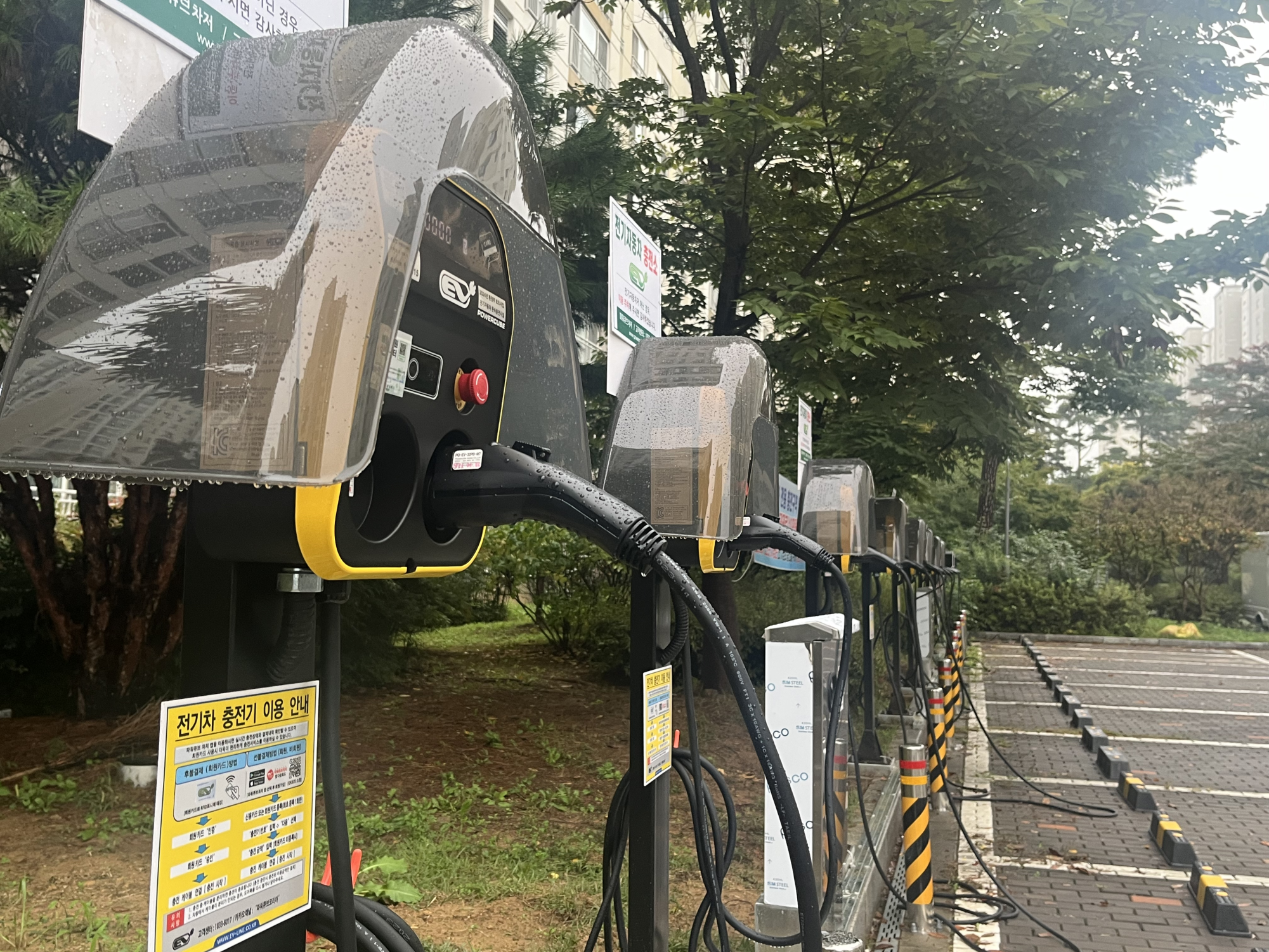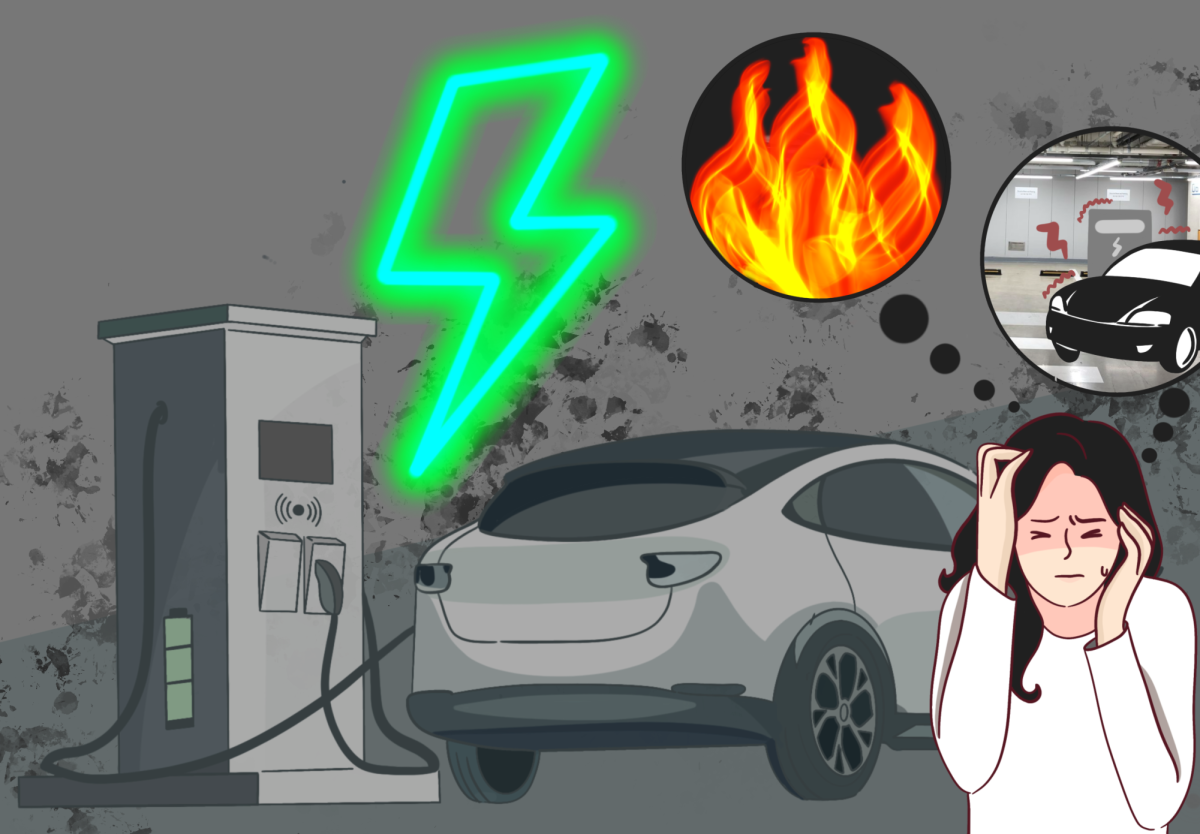Disclaimer: the security manager requested to remain anonymous due to privacy concerns about his apartment residents.
A fiery blaze engulfs a Mercedes Benz. In its aftermath, it leaves 23 people injured and 140 vehicles damaged. South Korea embraces a shift towards the seemingly eco-friendly electric vehicles (EVs). However, their instability, with multiple reported incidents, raises nationwide concerns. Reports of EV fires have ignited public fears and fueled “EV phobia,” calling the nation’s readiness into question. Additionally, people scrutinize current pro-EV policies, especially when the vehicles pose risks to nearby residents.
Recent incidents, particularly a few fatal EV explosions, caused many to criticize the reliability of these vehicles. The nation reported 72 EV-related fires in 2023, marking a troubling increase of 24 incidents since 2021. In August 2024, the Kia EV6 blaze in South Chungcheong Province, one of many EV fire incidents in recent years, exacerbated mounting concerns over the safety and reliability of electric vehicles.
In response to public anxiety, some communities have taken measures to address safety concerns. An apartment complex in Dong-gu, Daegu recently moved EV chargers from underground parking lots to above-ground. “The replacement of the EV chargers was mainly due to recent electric car fires in Korea. Most residents feared explosions in the underground parking lot,” explained the complex’s security manager who oversaw the relocation.

This change eased multiple resident concerns. “With chargers now above ground, we feel safer and more at ease, especially with all the recent fire reports,” said Seojin Lee, a resident of the apartment complex.
Despite ongoing concerns, a recent law requires at least 5% of parking spaces to be designated for EVs. However, traditional car owners disagree with what they label exclusive privileges: “Not only are these vehicles occupying more of our shared parking spaces, but their exclusive treatment feels unfair, especially when their safety is so questionable,” said Dongwoo Jang, a long-time driver and resident of the complex.
While proponents of EV laws argue that the technology proves significant for the environment, safety must be prioritized over sustainability. Indeed, industry professionals agree that EVs pose a significant danger. “These incidents certainly highlight an urgent problem. While EVs are an exciting innovation, the technology is still evolving, and safety issues cannot be ignored,” said Dongon Park, a professional car dealer. “The fires undermine public trust, which is essential for the successful adoption of any new technology.”
With over 70 fires in just one year, the reliability of the technology remains in question: EVs remain volatile, unproven for our streets. Korea must establish stringent safety regulations such as higher battery standards through EV battery certification systems with regular inspections and battery improvements.
The government should stop the privileges in the meantime, rather than focusing solely on green technology at the expense of public trust. “The government needs to prioritize safety regulations and collaborate with manufacturers to develop robust standards. Public trust is the foundation for widespread EV adoption. Without it, we risk undermining our progress toward sustainable transportation,” Park said.
For EV drivers, public education on proper usage may prevent such incidents. “Public education is critical. Many fires could potentially be avoided if owners were better informed about the proper maintenance and handling of EVs. Simple things like avoiding overcharging or knowing how to respond to battery issues could make a significant difference,” said Park.
While sustainable transportation is crucial for the future, safety must remain South Korea’s top priority. EV adoption should not outpace public trust or compromise citizen security. By enforcing rigorous standards and fostering public awareness, we can cultivate a safer environment for green innovation. Only when safety and sustainability align can we truly embrace a future where technology serves everyone.
This story was originally published on Jets Flyover on December 4, 2024.






































